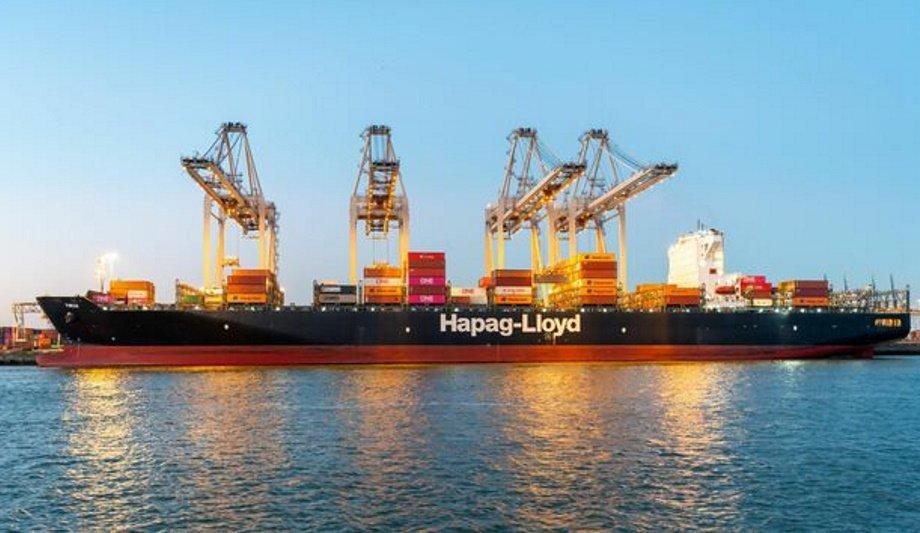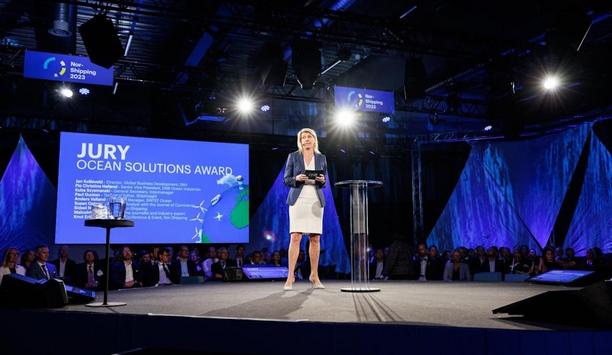Hapag-Lloyd and three other partners have joined the Rotterdam-Singapore Green and Digital Shipping Corridor, furthering strengthening its efforts to accelerate digitalisation and decarbonisation of one of the world’s foremost shipping routes.
The Green and Digital Shipping Corridor was started by the Maritime and Port Authority of Singapore and Port of Rotterdam Authority in August 2022 to accelerate decarbonisation and digitalisation on the one of the world’s foremost shipping routes.
To-date, the initiative has brought together 26 global value-chain partners, including shipping lines, fuel suppliers, port authorities and leading financial and maritime institutions.
Hapag-Lloyd joins Green and Digital Shipping Corridor
Hapag-Lloyd, the world’s 5th largest liner shipping company, is the latest addition to the corridor
Hapag-Lloyd, the world’s 5th largest liner shipping company operating more than 260 ocean going vessels, is the latest addition to the corridor.
Hapag-Lloyd is joining four other major global container shipping lines, which aim to deploy large container vessels running on zero-and near-zero emission fuels along the high-volume Asia-Europe trade lane.
Encourage the uptake of zero and near-zero emission fuels
The corridor partners have established working groups for the adoption of several zero and near-zero emission fuels on the route, including synthetic and bio-variants of methanol, ammonia, methane, and hydrogen.
This implementation follows earlier modelling studies undertaken by the Maersk Mc-Kinney Møller Centre for Zero Carbon-Shipping and the Centre for Maritime Studies of the National University of Singapore to explore multiple alternative fuels pathways and their viability as sustainable marine fuel.
First bio-LNG bunkering pilots by the end of 2024
Corridor partners plan to carry out the first bio-LNG bunkering pilots by the end of 2024 and are working on standards and principles for the roll-out of methanol on the route.
Studies are also underway to assess the potential of ammonia and hydrogen to reduce emissions on the route, including for possible novel ship designs to optimise the use of hydrogen.
Better ship-shore data exchange for efficient shipping
On the digital front, Singapore and Rotterdam have successfully trialled the exchange of port-to-port data and are now able to exchange vessel arrival and departure times to facilitate port planning and optimise port-calls. Following this successful trial, the two ports will work on implementation for vessels calling both ports and start adding more ports to the network.
MPA and PoR jointly issue a call-for-proposal for solutions
MPA and PoR have also jointly issued a call-for-proposal for solutions
MPA and PoR have also jointly issued a call-for-proposal for solutions that enable efficient and secure data exchange, demonstrating the shore-shore and ship-shore exchange of operational, administrative, and nautical data based on global standards.
Together with PSA, both ports are also facilitating a proof of concept to conduct monitoring, reporting and verification of greenhouse gas emissions along the route.
Public-private collaboration across global value chains
Mr. Teo Eng Dih, Chief Executive of MPA said, “The progress made since the establishment of the Rotterdam-Singapore Green and Digital Shipping Corridor in August 2022 demonstrates that public-private collaboration across global value chains can be achieved.”
Teo Eng Dih adds, “This collaboration will allow Singapore and Rotterdam to pilot innovative solutions on one of the world’s busiest shipping routes and accelerate the decarbonisation and digitalisation of the shipping industry.”
Singapore – Rotterdam Green and Digital Shipping Corridor
Mr. Boudewijn Siemons, Chief Executive Officer of POR said, “The Singapore – Rotterdam Corridor is a very valuable collaboration in accelerating the twin transition: the integration of digital innovation in energy transition efforts.”
Boudewijn Siemons adds, “Not only are we seeing the first results in standardisation and data sharing for Port Call Optimisation, but also the first steps in moving towards operationalisation of zero and low carbon fuels on this trade lane.”












